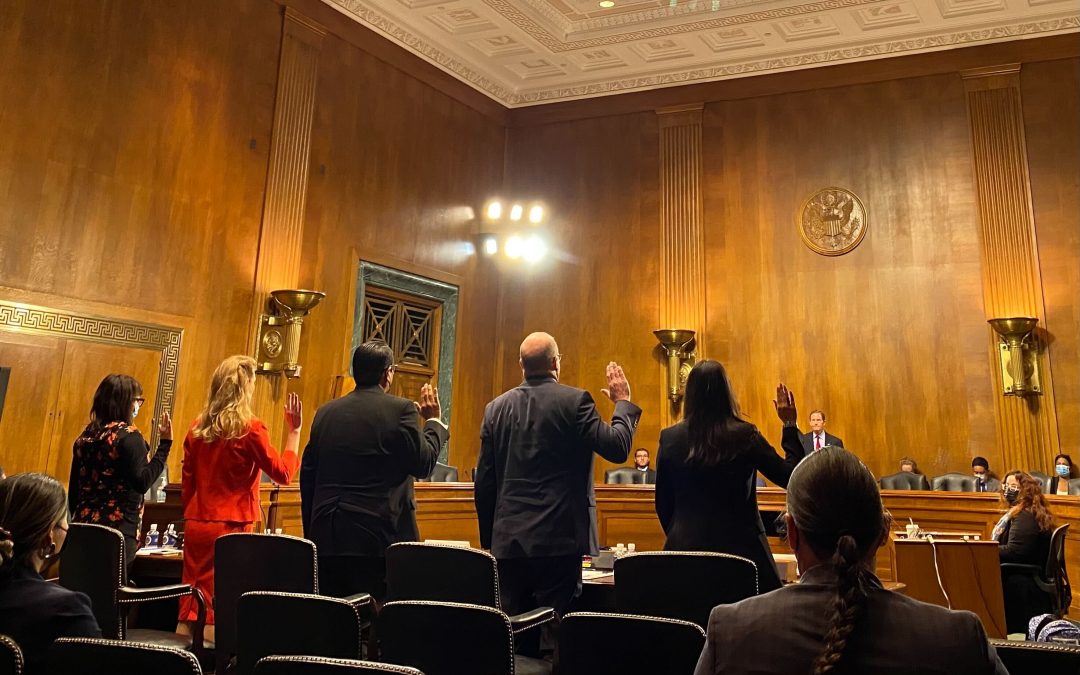WASHINGTON—Democrats and Republicans clashed Wednesday over the electoral implications of the Native American Voting Rights Act.
In his opening remarks before the Senate Judiciary Subcommittee on the Constitution, ranking member Ted Cruz (R) called the discussion a “Democratic power grab.”
Cruz detailed his concerns about voter fraud and ballot harvesting, which Democrats Richard Blumenthal, the subcommittee chairman, and Jon Ossoff denied.
The Native American Voting Rights Act was introduced in both the House and Senate in early August. The bill would provide for a slate of protections for voters on tribal lands, addressing issues of access caused by what Sen. Ben Ray Luján, D-N.M., called “geographic, linguistic and legal barriers.”
Many Native Americans live on reservations without designated polling places, and few households have traditional postal addresses, said Jonathan Nez, president of the Navajo Nation. Many also carry only tribal ID cards, which are currently considered invalid forms of voter identification. Ballot drop boxes can be hundreds of miles from reservations, and many reservation residents may not have personal vehicles or public transportation that can easily take them to those stations.
Native American and Alaska Native voters, Blumenthal said, “have been systematically and purposefully denied participation in the franchise over the history of our country.” One million eligible Native Americans are not registered to vote, according to the senator from Connecticut, and the issue is compounded by inequities in funding, housing security and infrastructure.
“Passing this legislation is the right thing to do,” said Luján, the lead sponsor of the bill in the Senate.
Sen. Amy Klobuchar, D-Minn., joined the hearing virtually to express her support for the inclusion of the bill in the John Lewis Voting Rights Advancement Act, which passed the House in August. The Senate is set to take up the measure as early as next week.
But the hearing’s emphasis on what he characterized as “federalizing elections” reflected the majority’s focus on “seizing power and ensuring that Democrats stay in power for the next hundred years,” Cruz said.
Blumenthal countered that the Native American and Alaska Native populations “might be a little bit offended, maybe even insulted to know that Senator Cruz thinks that expanding voting rights in Indian Country is somehow a means for Democrats to empower themselves.”
And Wyoming Secretary of State Edward Buchanan said he believed the bill is “a recipe for fraud” that “completely usurps the state’s role” in election management. Specialized focus on Native populations, Buchanan said, could lead to “disparate treatment among the voting public in general.”
Native populations “have proved resilient,” added Cruz, who said “their voting needs” are already being addressed.
But at several points throughout the hearing, Blumenthal underscored that “there’s no prejudging” how Native Americans will vote, and there is no evidence to suggest widespread voter fraud in Native American communities.
“Quite frankly, Alaska Natives would welcome the opportunity to have some voter fraud,” noted Nicole Borromeo, executive vice president and general counsel for the Alaska Federation of Natives. “But of course that requires having polling places implemented in the first place in our villages.”

